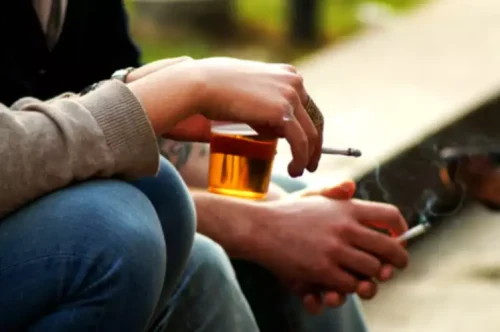
The feeling of warmth Alcoholics Anonymous may actually mask a drop in body temperature, and sweating makes you more likely to catch a chill. In extreme cases, some people have actually died from hypothermia after spending too much time in cold weather while drunk. But if heavy sweating is accompanied by fever, rapid heartbeat, confusion, or even hallucinations, one should seek medical assistance. Taking one glass of alcohol after another may cool you down mentally, but physically, you may feel the heat, quite literally!
Alcohol Withdrawal & Night Sweats
Night sweats, a common condition characterized by excessive sweating during sleep, can significantly disrupt an individual’s rest and quality of life. While there are various causes for night sweats, such as menopause, infections, or certain medications, alcohol consumption is a particularly notable trigger. Understanding the relationship between alcohol and night sweats involves recognizing how alcohol affects body temperature and heart rate. These factors can contribute to the occurrence of night sweats after alcohol consumption. It’s essential to be aware of the potential risks of hypothermia or dehydration, especially in different weather conditions, as night sweats can lead to increased fluid loss.
Getting help for alcohol addiction
- While each patient is different, sweating can happen from a tumor, the treatment itself or drugs that might be prescribed for pain or other reasons, according to the National Cancer Institute.
- This can contribute to alcohol-related insomnia, and be especially bothersome for women during menopause.
- This condition, known as alcohol intolerance, may be due to a lack of aldehyde dehydrogenase, an enzyme necessary to break down alcohol.
- Alcohol affects the central nervous system and can have an impact on heart rate.
- While this vasodilation leads to a temporary feeling of warmth as blood flow to the skin increases, it’s a deceptive sensation.
- If you notice any of these symptoms in yourself or someone else, call 911 immediately.
But unlike regular smoking, this side effect will eventually disappear. The environment in which you sleep can significantly impact the likelihood and severity of night sweats. Alcohol is a diuretic, which means it increases urine production and can lead to dehydration. Alcohol poisoning is a serious medical complication that can happen to anyone, but particularly to people who binge drink.
Functions of Alcohol Sweating
When buying clothes to workout in try and find shirts and pants made out of natural, lightweight fibers – like cotton. These types of fabrics are breathable and absorbent allow sweat to transfer away from the skin. Alcohol withdrawal is a serious condition and it is important for someone struggling with it to receive medical attention. So, it is important to note how your body responds to alcohol when you’re drinking. Join 40,000+ People Who Receive Our Newsletter Get valuable resources on addiction, recovery, wellness, and our treatments delivered directly to your inbox. These night sweats can be unsettling and disruptive to sleep patterns, requiring attention and understanding.
- These symptoms can occur within 48 to 96 hours after the last drink, and in some cases, they may appear up to 10 days later.
- If you’re experiencing night sweats from alcohol consumption and are concerned about your drinking habits, it’s recommended to consult with a doctor.
- Here are some tips to help you minimize discomfort and ensure a more restful sleep.
Alcohol-Induced Night Sweats
But vasodilation occurs at intoxicating levels, so if you know your limit – and stick to it – you can safely indulge from time to time. For those who are unable to reduce their alcohol intake on their own, a medically supervised detox can be a crucial step. Experiencing night sweats after drinking alcohol can be both uncomfortable and disruptive to a good night’s sleep. Fortunately, there are several practical steps you can take to manage and reduce the severity of these symptoms. Here are some tips to help you minimize discomfort and ensure a more restful sleep.

The Effects of Alcohol On Your Body From The Minute You Start Drinking
If you are experiencing night sweats from acute intoxication with alcohol or alcohol intolerance, the effects will probably only last while alcohol is still active in your bloodstream. Alcohol withdrawal can cause excessive sweating because the https://ecosoberhouse.com/ body’s autonomic nervous system becomes dysregulated. Withdrawal from alcohol can also cause a fever, which can contribute to perspiration. People experiencing alcohol withdrawal relating to alcohol dependency should consider seeking urgent medical attention. A doctor can provide information and guidance on how to avoid alcohol.

Enter your email to receive your personalized sweat solution and a FREE gift.

Women who are going through menopause may be more susceptible to alcohol-induced sweating. Another serious cause of alcohol-induced sweat is alcohol intolerance. However, there are ways to decrease groin sweat and manage it effectively. Excessive sweating and constant moisture can wreak havoc on the skin that covers the groin.
Alcohol impacts the brain and changes body temperature, and one may sweat due to this. Our science-backed approach boasts 95% of patients reporting no withdrawal symptoms at 7 days. True night why does beer make me sweat sweats cause you to soak your clothing and sheets with perspiration. If they’re severe, you may awaken several times every night to change your clothes and bedding. Interrupted sleep like this is hardly restful, and it can be dangerous. There are a few explanations for why you may sweat in your sleep after drinking alcohol.

If you have hyperhidrosis it is still safe for you to drink alcohol, but it is a good idea for you to understand how alcohol affects you and your condition. Additionally, fatigue, a persistent sense of tiredness or weariness, often accompanies night sweats, potentially impacting overall well-being. People with alcohol intolerance may experience discomfort even with small amounts of alcohol, prompting them to avoid it altogether. In other words, alcohol tends to move heat to the perimeter of your body—making you feel warmer, while the core of your body is actually cooling down.
